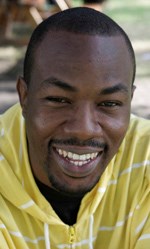This month the Canadian writer and renowned broadcaster Peter Stursberg will turn 100. It is an age that not many people can come close to or even fathom reaching.
During the Second World War he became a household name reporting from the frontline of the War.
This was a time when news coverage of the War relied heavily on voices and Stursberg's voice was the one Canadians listened to for details and happenings in German occupied Europe.
This was the golden age of radio and Stursberg was able to paint pictures for Canadians bringing both the defeats and victories at the time.
He reported the liberation of Holland which was largely aided by Canadian troops. And to this very day Holland sends tulips to Canada in May each year in recognition of keeping Princess Juliana and Princess Margriet safe in Canada during Nazi occupation.
"This is Peter Stursberg reporting to the CBC from Holland. I have just come from Amsterdam where I saw the greatest and the strangest and the most fantastic liberation scenes of this war. Vast crowds packed one of the main approaches to the city celebrating the end of the war."
These were the words of Stursberg after the liberation, words which I'm sure Princess Juliana was listening to during her time in Canada. I only hope to live a fulfilled life like Stursberg, he witnessed firsthand the victory in Europe and he's alive to tell stories that not many men can share.
In a CBC article by reporter Alison Smith, Stursberg recounted his time doing a live report. "Just before we entered Rome, they moved a transmitter up to the outskirts of Rome, and they set aside half an hour for the networks," he says. "So I had, you know, five minutes I think, which meant that I could do a two- or three-minute report, and I did this report, and it went over live, you see. This wasn't a recording. I felt, you know, I was talking into a barrel. And I wondered whether anyone ever heard me, but we did get through, and that was the only live report I ever did."
At the time CBC stood miles ahead of BBC and the American broadcasting networks as Canada's technology in radio was unrivaled. But that comes as no surprise, it was a Canadian who invented radio, but hey, that's a discussion for another day. CBC's portable equipment made the difference, their technology allowed them to travel to various locations and get in the grittiest areas during the war.
CBC wasn't known to have a large audience but many attribute its growth in listenership to Stursberg's reports. On his return to Canada the CBC sent the reporter to conduct speeches across the country. Like many people across the world at the time when the world leaders spoke Canadians were tuning in; on VE-Day King George VI addressed the world signifying the end of the war. But along with those leaders' voices Stursberg's voice was just as recognizable and important.
So in the coming days I wish the stalwart a happy birthday and I only wish I could sit with him to go over tales of the war. It took not only courage to go out and report in a war zone but the professionalism he displayed was exemplary. Granted, I am speaking from watching video clips and listening to audio recordings my professor used to play during radio class. But it still had an impact on me and my chosen field.
I think I have a voice for radio and believe that I may someday be able to speak to masses via the air waves, but I'm no Peter Stursberg by any account, happy birthday Sir.




